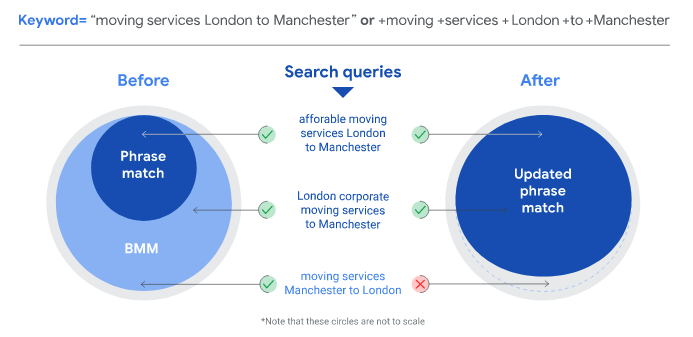Google Ads has announced that it will be removing the expanded text ads (ETAs) format from the platform from June next year.
ETAs have been a feature of Google’s advertising platform since 2016 and allow advertisers to define specific advertising copy to show within Google’s (and their partners’) search results.
Starting in June 2022, advertisers will no longer be able to create or edit ETAs. Existing ETAs will remain available within user accounts and advertisers will retain the ability to pause and reactivate existing ETAs.
Closer to automation
This change represents the latest step in what has already been a sustained push towards advertising automation from Google’s advertising platform.
The change comes hot on the tail of numerous edits made to Google’s keyword match type algorithms, the latest of which rolled features of the broad modified match (BMM) keyword match type into the phrase match keyword type.

The change now means that advertisers will need to rely on Google’s responsive search ads format that relies on advertisers specifying multiple headlines and descriptions prior to handing over control to the search engine to compile a series of ads.
Analysis – likely to upset many
The beauty of the ETA format for advertisers is that ad copy can be crafted safe in the knowledge that what is shown to the market is exactly what was intended, both in terms of copy and format.
Relying on responsive search ads removes this certainty.
This is likely to be problematic for firms that, for instance, need to include key messaging within ads for regulatory reasons. Whilst it is possible to ‘pin’ headlines and descriptions to a specific part of a responsive search ad, advertisers will proceed with more caution because of the certainty of the ETA format that will be lost.
Google has made no secret of its push towards automation within its advertising product. Keyword match types have long been the subject of change, removing direct control from advertisers and handing power to machine learning and algorithms.
This change is just the latest such move by the platform.
The best advice? Get comfortable with relying on responsive search ads now.











